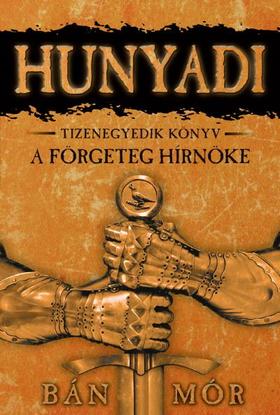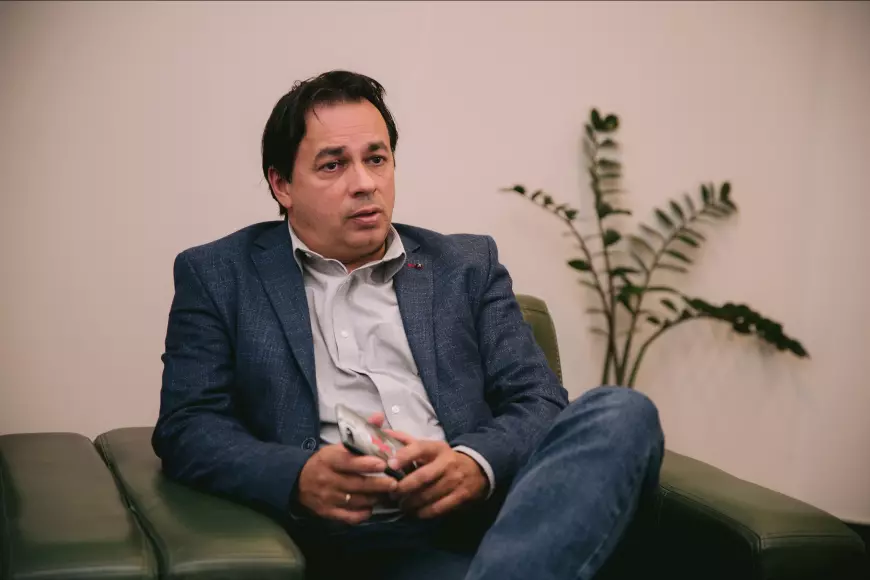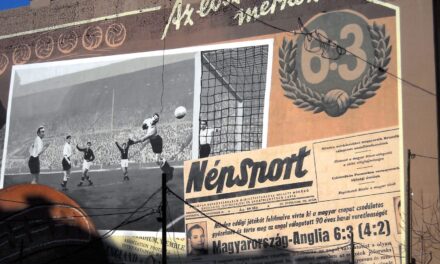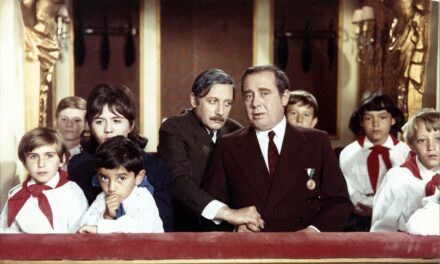János Bán, under the pseudonym Mór Bán, is one of the most successful contemporary Hungarian writers. Beyond dispute, it renewed the genre of the Hungarian historical novel, as dozens of talented novelists have emerged from under its imaginary armor in recent years. Ma7sk talked to the author about his literary career, the upcoming Hunyadi series, and the chances of historical films. journalist.
"The past should not be erased, but should be known as much as possible, then there is a chance to improve it. History always provides an opportunity for this!" - says János Bán, to whom we owe the Hunyadi novel series, the 11th volume of which, the "Messenger of the Spinner", is expected by fans for Christmas. At the same time, a television series is on the horizon, about which the writer says:
"As a reader, I also like cinematic stories. The ones that are easy to visualize, from which a good "movie" is made in our own internal cinemas. It helps a lot if the writer is able to make the reader see the scenes of the book in front of him. However, there is no question of awareness in the sense that I already intended the stories for motion pictures when I wrote them."
Even before I started writing, it was clear to me that the life of the Hunyadis wanted to be on screen and on the screen. It is sinfully careless that this has not been done until now. With the second volume, I already suspected that I wouldn't fit into a trilogy, and then it became more and more obvious that if the story ever took the form of a motion picture, a movie wouldn't be enough. According to the plans, a ten-part series is being made, and it won't fit everything in it, even the compilation of the script was a huge challenge.
Recently, an unsuccessful Hunyadi film project was brought up, about which he reflects as follows:
We had nothing to do with the film project The Last Bastion. Absolutely not for my novels, at most they made the era more popular. In my novels, for example, fictitious and anachronistic motifs do not appear, as in the screenplay of the feature film designed by János Szász (which was eventually rejected), (Lóvar bouncers, Hebrew gunners, really my brain), but a real international collaboration unfolds in the pages of my books. In addition to Czechs, Germans, and Poles, Ráks, the cavalry of the Olach voivodships, and Kuns also fought in good numbers in the armies of the Hunyadians.

Source: Gold Book Publishing House
To the question of the reason for the lack of Hungarian historical films, since there is no country in Central Europe that has not filmed at least one, he answered: It is not that no such films have been made in our country, but the difference is really striking. Let's think about it, since the historical films of Zoltán Várkonyi, there have been hardly any meaningful historical productions. We have not made a real, big-budget historical film about St. István, János Hunyadi, or King Matthias. A cartoon, TV movie, rock opera, comedy about Mátyas and King István, but unfortunately not a real big historical movie. I have dealt with the topic a lot, I also have an unpublished study on it.
I came to the conclusion that while internationalism was taken seriously in Hungary during the socialist decades, in the surrounding countries pure nationalism, and sometimes chauvinism, could be seen in action under the internationalist veneer. In our country, they were afraid of films made in a national spirit, the creators would have immediately been labeled nationalist, irredentist, and even sometimes anti-Semitic. This was based on a conscious cultural policy decision, and it is really interesting that there was no breakthrough in this area even after the system change. Not only in the film industry, but also in the contemporary literary canon.
According to János Bán, the system change was lacking in culture in such a sense that there was a lack of training with a national spirit. Not necessarily because of the ban: "in my opinion, it's more about self-censorship and, on the other hand, the fact that the younger generation didn't have anyone to explain why it was important to make good historical films. Don't get me wrong, amazingly good works were created, but they mostly dealt with one of our great twentieth-century traumas, World War II. World War II, the Holocaust or the Rákosi system. A very strong thematic selection was evident. And it is also a fact that the creators themselves did not feel motivated to make spectacular and artistically high-quality historical films about, say, the Hungarian Middle Ages or the exciting events of the modern era.
You can read the entire interview at: ma7.sk













